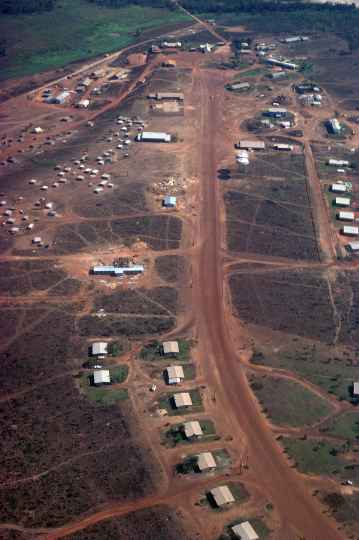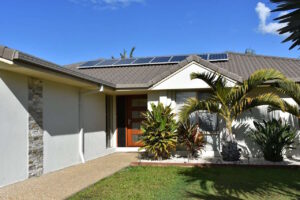As was noted in this Sierra Club article we posted last week – a story about how a company called Grameen Shakti is managing to install one thousand solar systems a day in poor, rural Bangladesh – 2012 is the International Year of Sustainable Energy for All. So it’s good to see Australia getting into the spirit of things, with the announcement of a new project targeted at increasing solar penetration in its remote towns and communities.
Mark Twidell, the executive director of the Australian Solar Institute – the $150 million government-established solar agency dedicated to developing photovoltaic and concentrating solar power technologies, and which is set to become part of ARENA in 2013 – revealed on Tuesday that the ASI would provide $500,000 to the Northern Territory’s Power and Water Corporation (PWC) to investigate ways to increase solar generated electricity in Daly River – an area that is currently heavily reliant on diesel for its power generation.
“In partnership with the local community and Charles Darwin University, PWC will undertake a feasibility assessment and develop a Solar/Diesel Mini-Grid Handbook, paving the way for roll out across the Territory,” Twidell said. “There are over 52 isolated diesel mini-grids throughout the Northern Territory, servicing remote Indigenous communities that could benefit from this project and solar’s clean, readily available electricity.”
PWC general manager of remote operations, Darryl Day, said the Corporation’s goal was to increase solar penetration on the Daly River grid through two mechanisms: generator optimisation and load management.
“We will challenge traditional operating principles of diesel generators, such as the need to keep a minimum diesel input, to optimise the solar output,” Day said. “Through load management, we will work to show solar output can be matched to consumer demand in real time, increasing its attractiveness as an alternative to diesel.”
Day said the that the observations gathered during the assessment would be recorded in a handbook that will used to help utilities to make informed project planning and design decisions in the future.
Twidell said mini-grid solar systems are often located in areas with optimal solar resources, and can provide reliable power at a price competitive with diesel. “Ultimately this project will reduce reliance on diesel generation, reduce remote community vulnerability to rising diesel fuel costs and improve energy security,” he said.






